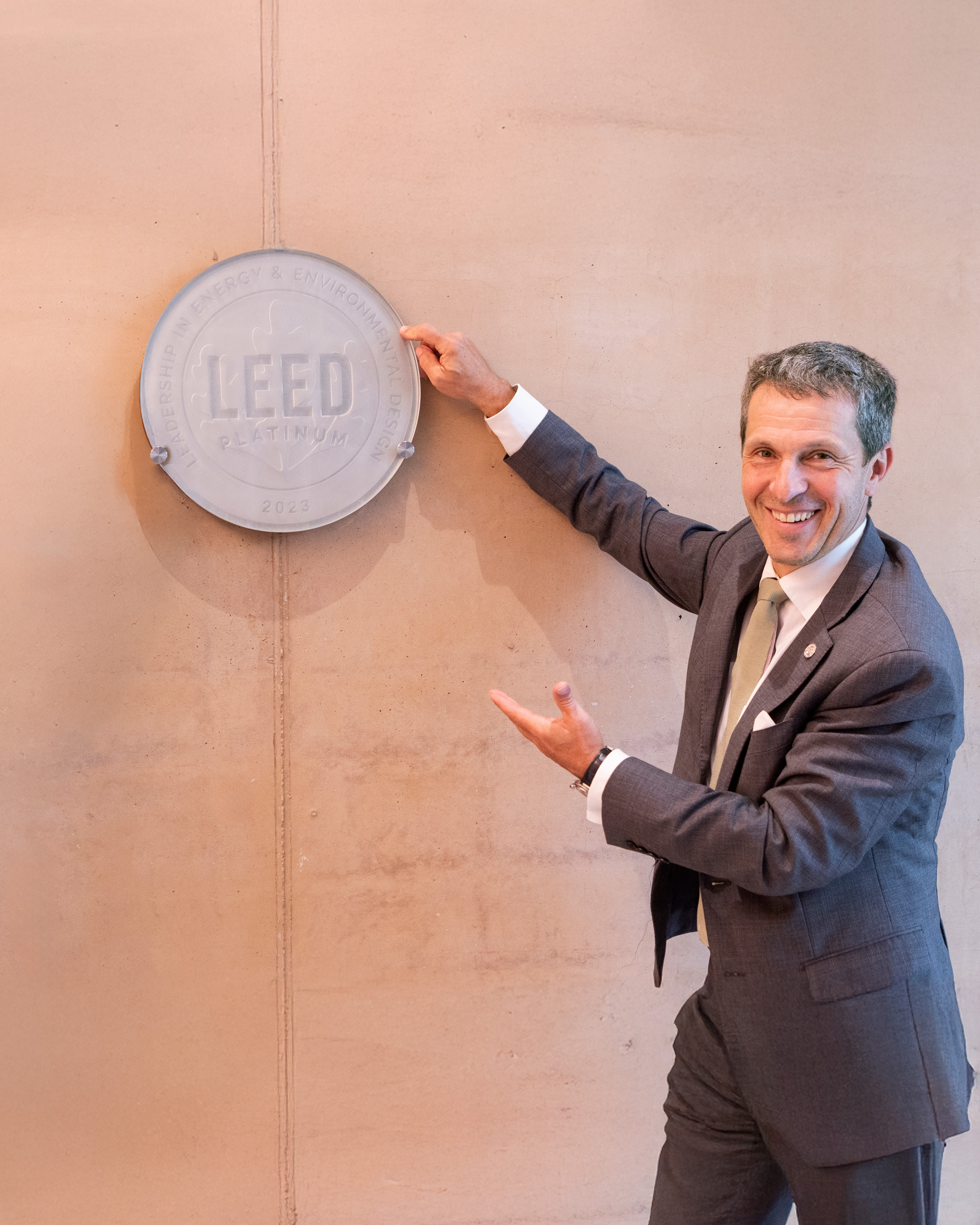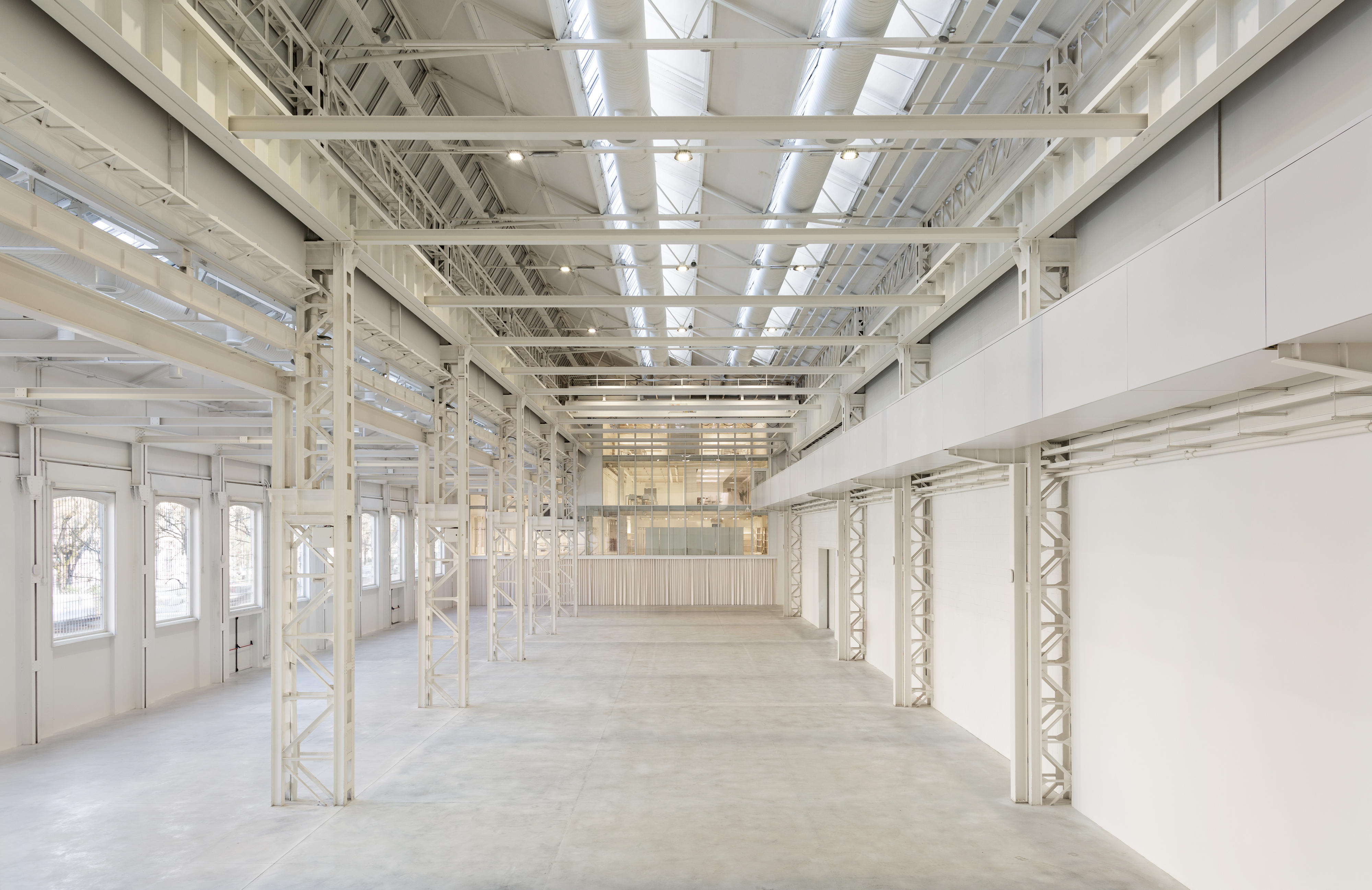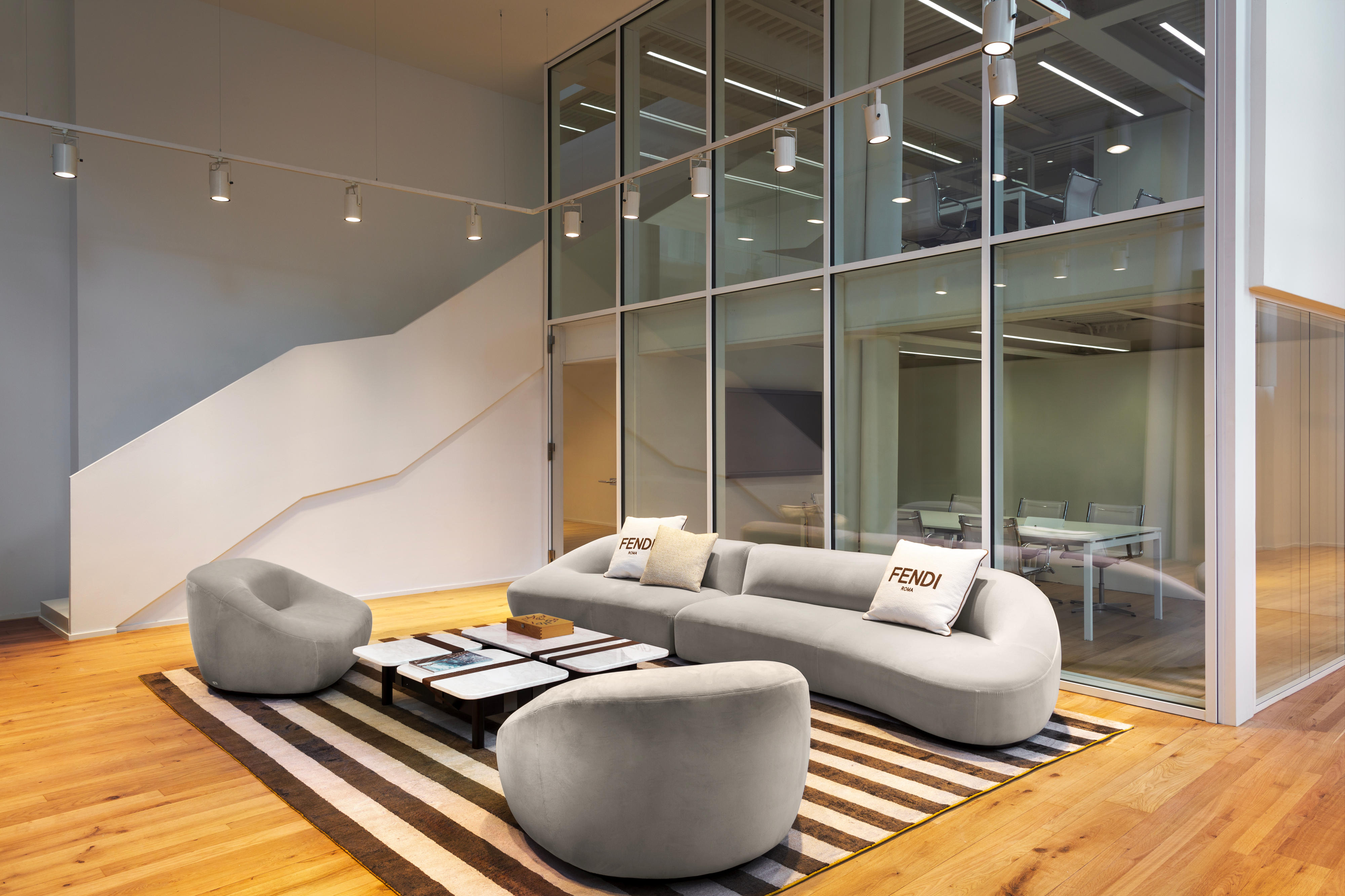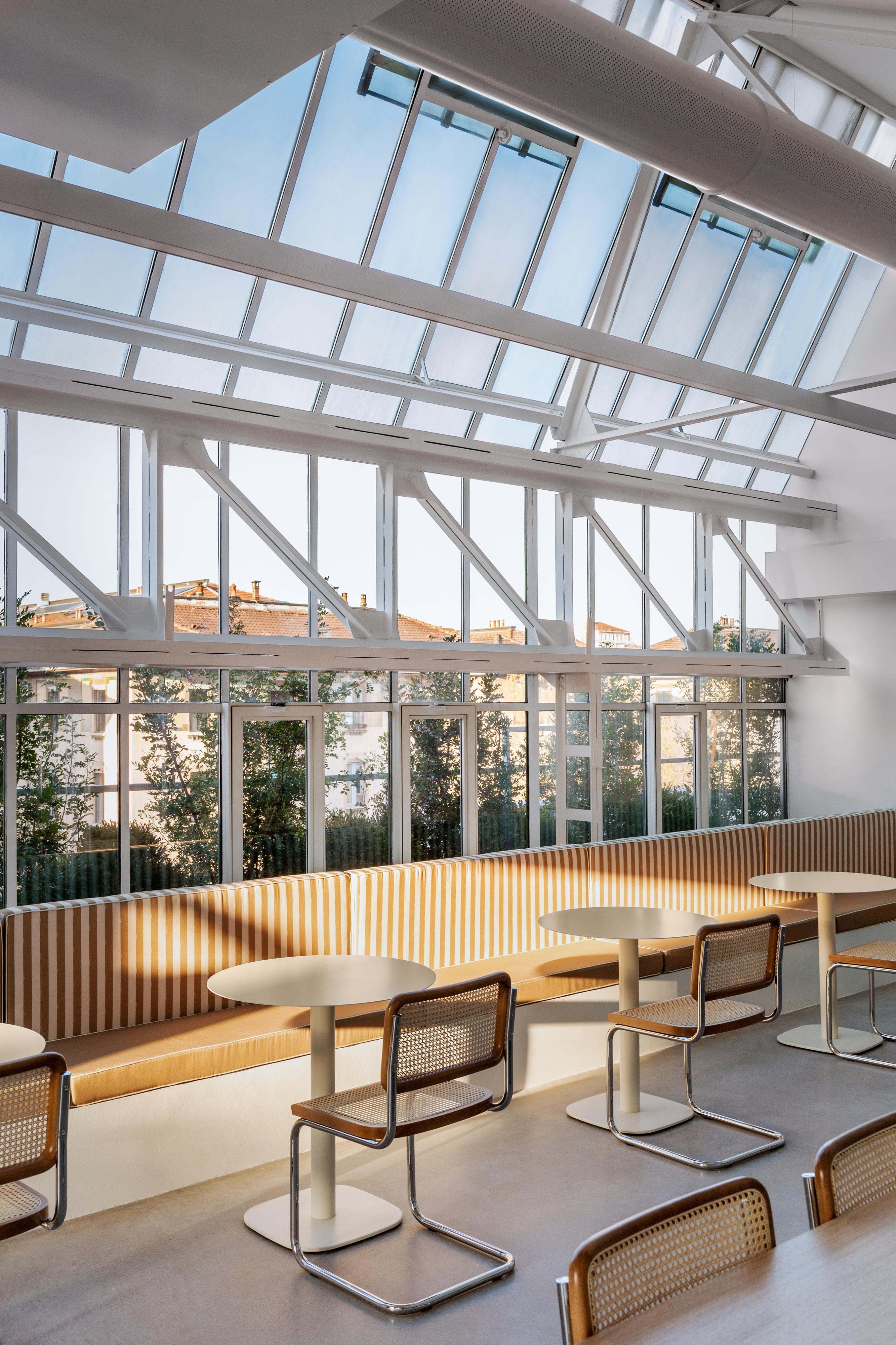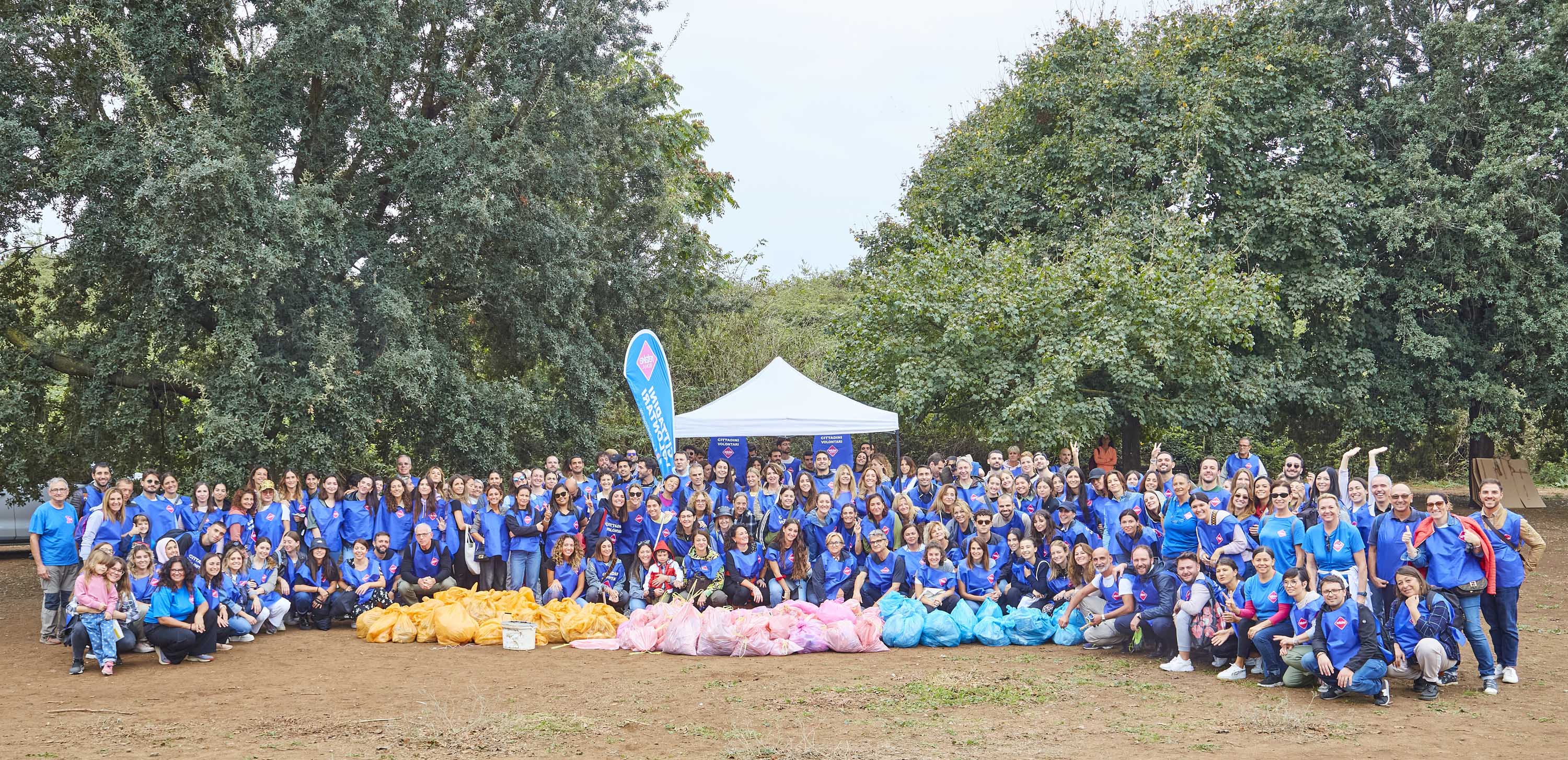Fermo
This new site, a renovation of an existing one, covering an expansive 7,000 square meters,includes a range of manufacturing areas, offices, and warehouses.
The architectural design of the building expresses the Maison’s blend of artisanal savoir-faire and handcrafting integrated with technological transformations, all while maintaining the commitment to environmental sustainability. The structure boasts an impressive and innovative corrugated-aluminium façade, featuring a leather-like wave effect, lending a touch of modernity and minimalism. The lines between indoor and outdoor spaces are blurred through ribbon windows, large see-throughs, and open spaces, harmoniously integrated into the natural conformations of the surrounding landscape.
Designed with a commitment to have a low environmental impact, the building maximizes the use of natural daylight. Part of the electricity is generated through solar panels, harnessing plenty of sunlight that filters through large glass walls and skylights. Internal glass panels are strategically employed as internal partitions,ensuring a visual flow across all departments.
This new pole will not only be a hub for the operations, but will also contribute to have a positive impact on the local community and future generations. In collaboration with the State Professional Institute for Industry and Crafts 'Ostilio Ricci' in Fermo, the brand has initiated the first edition of the FENDI Shoes Master Class. The program is designed to train a new generation of specialised artisans, imparting the core values of craftsmanship, precision in work, manual skills, and creativity.
FENDI has initiated the ‘Adopt a School’, an educational project in collaboration with Altagamma and the ‘Ostilio Ricci’ Institute, also located in Fermo. The ultimate goal of the project is to fight unemployment and protect Italian manufacturing skills by fostering connections between the luxury industry - including fashion, design, hospitality, and automotive sectors - and Italian schools, mainly technical and scientific institutes.
